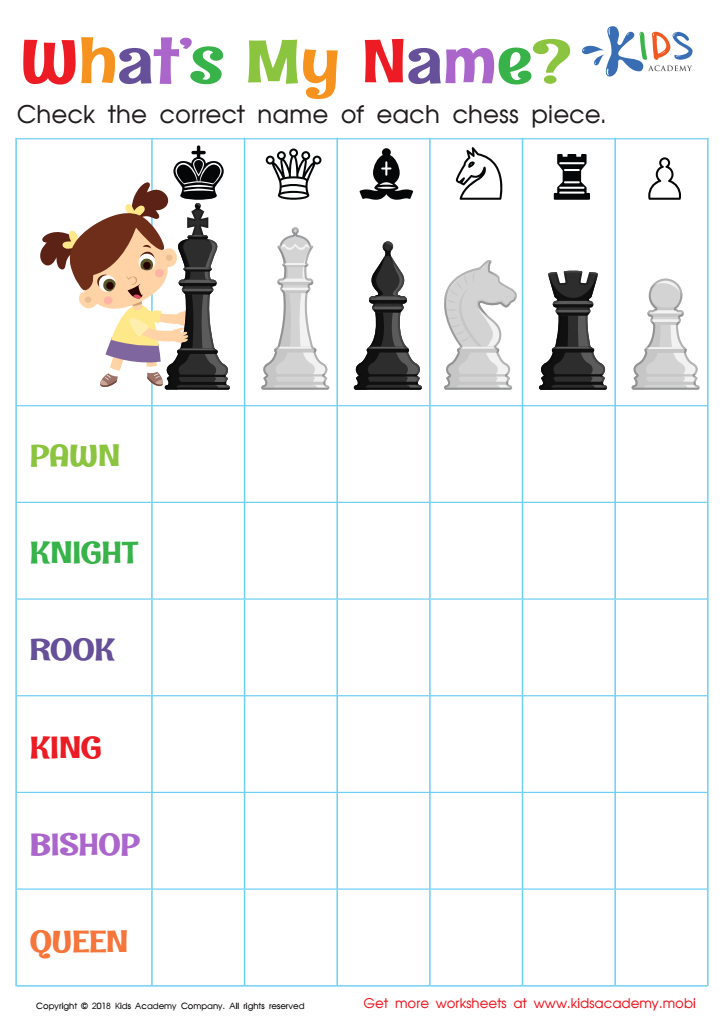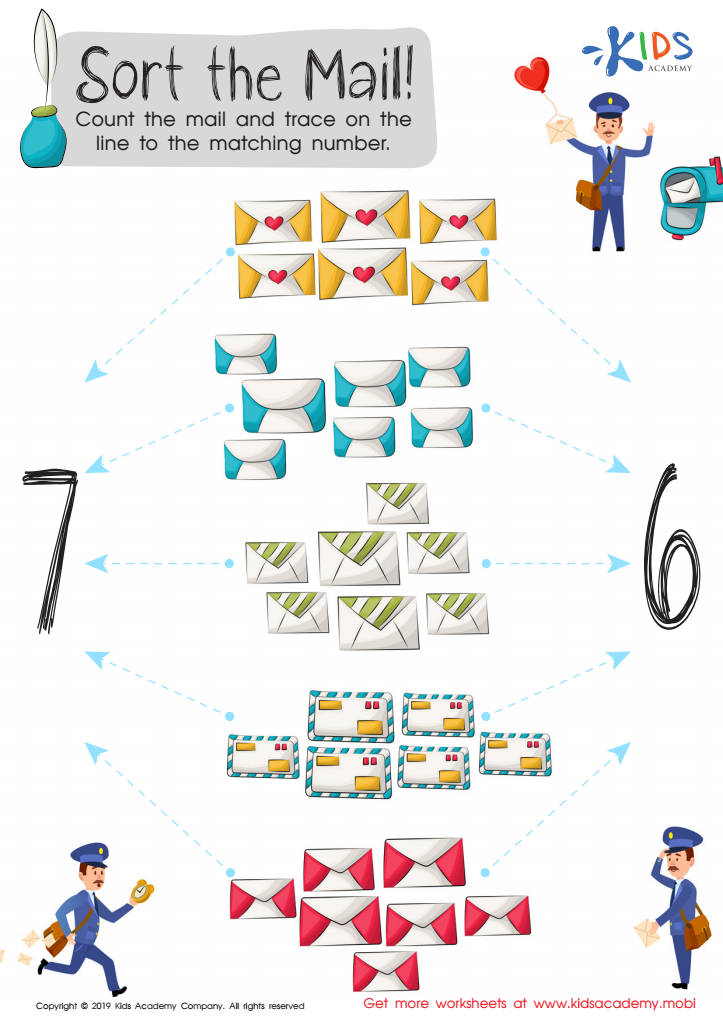Letter recognition Math Worksheets for Ages 5-7
5 filtered results
-
From - To
Explore our engaging Letter Recognition Math Worksheets designed for ages 5-7, fostering essential early education skills. These colorful, interactive worksheets seamlessly integrate letter recognition with fundamental math concepts, creating a fun and comprehensive learning experience. Ideal for young learners, our activities help improve literacy and numeracy through playful exercises like tracing letters, counting objects, and solving simple math problems. Each worksheet is crafted to captivate children's interest and encourage independent practice. Dive into our collection to ensure your child builds a strong foundation in both reading and math, setting them up for academic success. Discover the joy of learning today!


What's My Name? Worksheet


Sort the Mail Worksheet
Letter recognition and early math skills are foundational pillars in the cognitive development of children aged 5-7. Parents and teachers should pay significant attention to these areas as they form the bedrock of future learning.
Letter recognition is crucial as it is the first step towards reading fluently. Understanding letters and their sounds helps children decode words they encounter, fostering not only reading but also writing skills. At an early age, making connections between letters and sounds enables kids to recognize patterns, aiding vocabulary development and comprehension. When children grasp these early literacy skills, they often perform better in all subjects, as reading is integral to learning across the curriculum.
Math skills in this age range are equally important. Early math skills such as counting, number recognition, and basic addition and subtraction lay the groundwork for more complex mathematical concepts. Proficiency in early math stimulates logical thinking and problem-solving abilities, essential skills for academic success and daily life. A solid foundation in basic mathematics fosters a positive attitude towards the subject, which can lead to higher levels of achievement in later schooling.
Thus, focusing on letter recognition and early math skills sets children up for success, cultivates a love for learning, and builds a framework upon which all other knowledge is constructed. Prioritizing these skills prepares kids for future academic challenges and lifelong learning.



 Assign to My Students
Assign to My Students
















